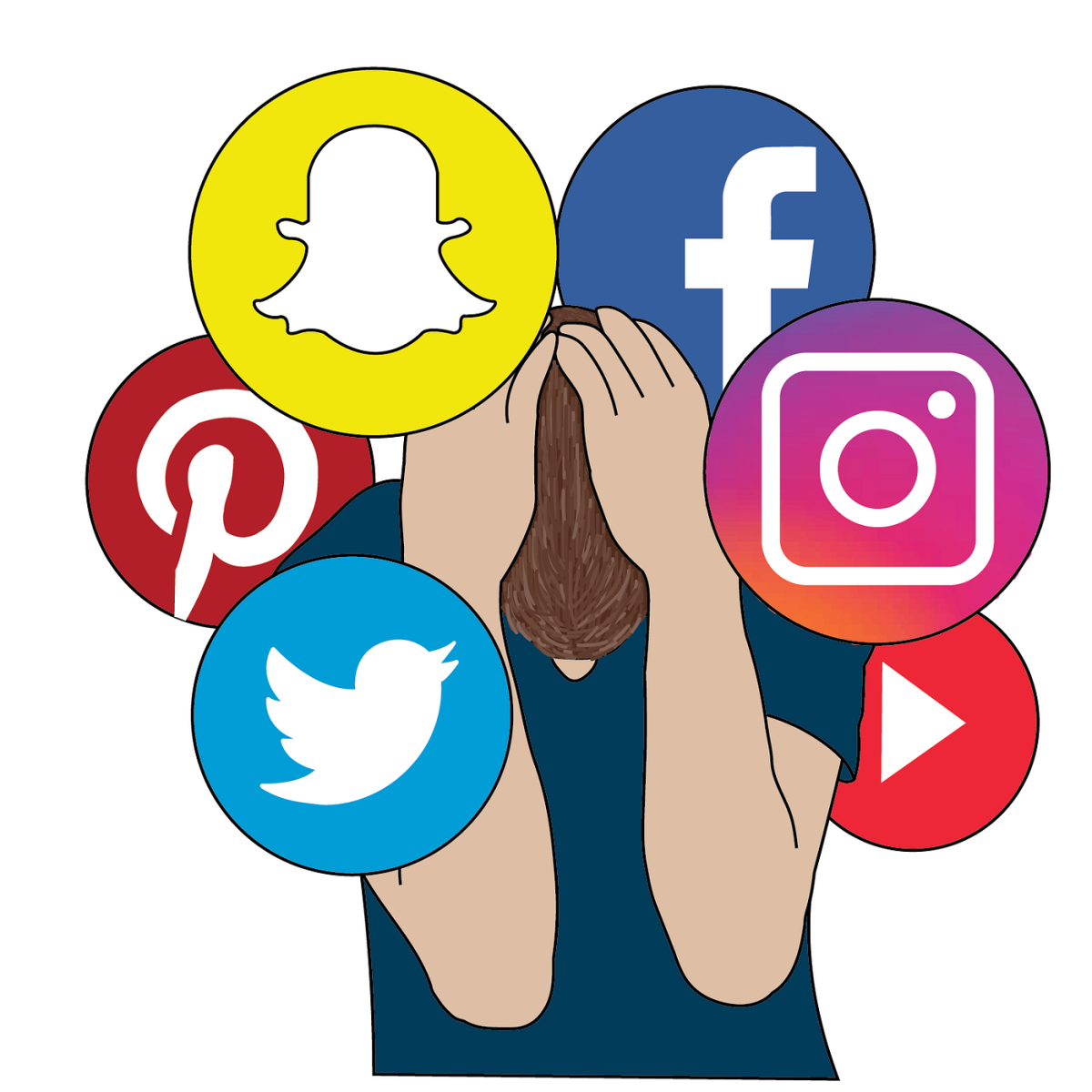Numerous individuals utilize social media as a daily platform for sharing their enthusiasm and lives for interesting pursuits. Yet, beneath the façade of the happy posts, the darker side of social media often emerges. Countless users have encountered cyber bullying or have succumbed to insecurities, leading to the development of toxic habits.
For students, these toxic behaviors form in order to fulfill the need of fitting; the need of having to fit societal standards. On the other hand, however, having time limits and boundaries on these networks can help improve mental health.
“The Wall Street Journal Facebook files investigation has exposed how the company, time and again puts profit before harm,” Member of the Parliament of the United Kingdom Damian Collins said in an interview with bbc.com. “Its own research is telling that a large number of teen Instagram users say the service makes them feel worse about themselves – but the company just wants to make sure they keep coming back.”
Through recent years, the boom of social media, especially in younger age groups, has been astronomical. According to statistica.com, in 2020, more than 3.6 billion people were on social media networks. This number of people leads to others experiencing cyber bullying and long term effects. Specifically in preteen and teenage groups, depression, anxiety and a sensation of being left out can be risk factors in using media at such a young age.
Fitting into ‘body norms’ that aren’t realistic on social media can also lead to eating disorders and unhealthy thinking. With that being said, parents should restrict what their children can view until a certain age to avoid these situations.
“I think anybody under 16 or 17 should have a private account because I do,” said Sophomore Stella Barajas. “There is a good amount of follow requests that I get on [the] daily of weird creeps [is] not okay. And those people following those younger children, seeing them do their TikToks… [is] gross and awful. I think parents should do a better job when that child gets Instagram or TikTok or Snapchat doing everything in their ability to make it safe for their child,” Barajas said.
Because there are so many influencers that can fake their lives, many teens think that they aren’t living the best life, or they may have a fear of missing out on life in general. This can further cause anxiety and depression in young teens.
“People might be scrolling through their phone at night or whatever, seeing all these people posting these perfect moments that they’re happy, they might think that they are living wrong,” said junior Aleah Pacheco. “I think it makes them feel like they’re not as perfect as these people online or that they’re not making the right choices or not living life to the fullest when really it’s not real,” Pacheco said.
Many people join social media at younger ages, causing cyber bullying to happen in earlier stages. Introducing young kids to the potential dangers of social media. Leading kids to believe that they have to grow up much quicker in order to fit in due to what they are seeing on social media.
“I grew up wanting to be like all the other girls I see on social media, comparing myself to everyone at a really young age unfortunately taught me to not love myself the way I am,” junior Eryani Nunez said. “I learned eventually as I grew up and realized that it is okay to look different than everyone else because we are supposed to be unique.”
Even though social media is often used to highlight the happy parts of our lives, many people will still be more concerned about having to please all of their viewers. Being able to document the amazing parts of your life is incredible when wanting to look back at when you’re older, but the emotional mark that is left on people will stay forever as well.
Users will look forward to being able to share their best pictures for their followers to see, often causing a tremendous amount of love occurring in their comment sections but that still doesn’t stop others from leaving hateful remarks. Many times people will look in the mirror and not be happy with the way they look, however there are ways to improve these negative thoughts.
Surrounding yourself around positive people, even telling yourself positive things to start your day, or posting positive sayings are amazing starts to feel better about yourself.
“I give myself a positive saying when I look in the mirror, or a lot of my friends are very supportive,” said Junior Alexa Aquino-Alcantar said. “But there are a lot of people who are my friends that shouldn’t be my friends and there’s points where they say something like ‘oh you don’t look good today’ that are more negative and used to take control of how I would see myself.”
If social media allows users to post their lives, there will be someone who has to put their negative thoughts onto it, possibly resulting in unhealthy habits. However, that does not mean that there are no ways to fix the outlook that users will have and having the limited time on these apps can improve positive thinking skills.








